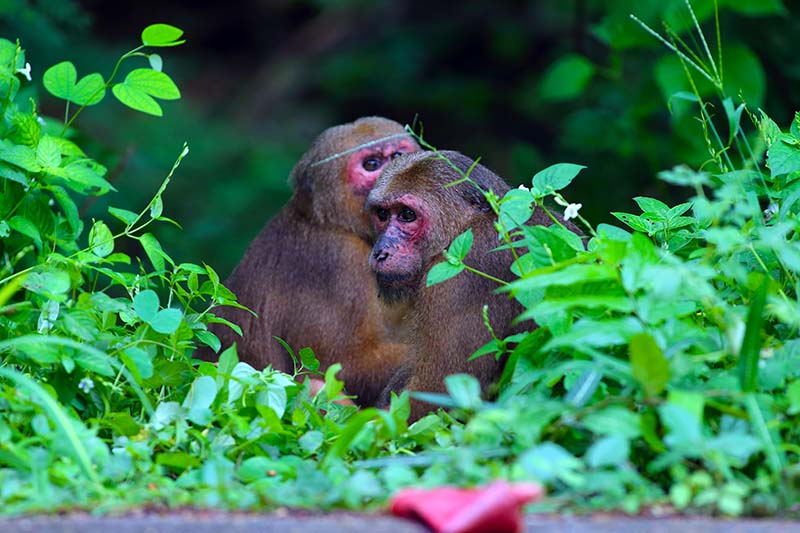2-minute read
There are countless ways our home planet shows us tender loving care. In addition to providing everyday essentials like food, water, and oxygen, exposure to Earth’s natural finery—trees, forests, parks, green spaces, wilderness areas, and wildlife has been scientifically proven to help enhance physical and psychological well-being. Depending on how much time you spend taking in the splendor of the great out there, you may reap health benefits that promote longevity, prevent disease, lower stress, and improve overall mood. That’s a whole lot of love.
Exposure to nature requires access. Now, thanks to two innovative tracking tools created by scientists at NatureQuant™, a new research and technology institution, you’ll be able to monitor the quantity and the quality of the planetary TLC you’re getting from your outdoor environment to help optimize well-being. That’s good news for adults in high-income countries like the United States, who spend 80 to 90% of their lives inactive and indoors.
Wondering how the nature in your neighborhood ranks health-wise? The NatureScore™ tool estimates the amount and quality of nature and environmental conditions across the United States and Canada. The NatureDose™ smartphone app uses GPS coordinates and NatureScore™ datasets to determine your location and how much time you spend in nearby nature to help you progress toward physical and psychological health goals. The NatureQuant™ tools can also be used to guide the allocation and creation of quality green spaces to improve nature equity in deprived neighborhoods.
You can download the NatureDose™ app here to start tracking your daily exposure to Earthly delights. Then, all you have to do to feel the love is step outside.

ICYMI Nature News
An Increased Dose of Nature
If you are lucky enough to live near the San Gabriel Mountains National Monument or the Berryessa Snow Mountain National Monument in California, you will soon have access to an increased dose of nature. Both monuments will be expanded this month to give visitors more roaming room.
Cliff-Diving Emperor Penguin Chicks
Award-winning cinematographer Bertie Gregory has captured amazing, unprecedented footage of emperor penguin chicks launching themselves into the sea by diving from a 50-foot Antarctic cliff. You can watch the never-before-filmed behavior from National Geographic here.
A Trillion Cicadas, Anyone?
Starting in late April, two broods of periodical cicadas will emerge from the ground in an event that only occurs every 221 years. Entomologists are expecting about 1 trillion of the winged creatures across 16 states. If you enjoy the smell of rotting nuts, you will be in bug heaven.
In the Natural World, Nice Guys Finish First
According to a new book by evolutionary biologist Jonathan Silvertown, Selfish Genes to Social Beings: A Cooperative History of Life, in the natural world, cooperation is more common than competition. So, nice guys do finish first… Or, at least, nice humpback whales.
They’re Just Dancing in the Dark
Have you ever wondered what deep sea creatures get up to down there? Apparently, these worms dance like nobody’s watching. Except for you.
Bold, Brilliant, Beautiful, Breathtaking Nature
The 2024 World Nature Photography Awards have been announced, and the winners are all the “B” words. Have a look!
Citizen Scientists are Helping Seahorses
Eagle-eyed citizen scientists around the globe are helping researchers develop conservation strategies to protect seahorses by providing new information on sightings of the charismatic creatures in the wild. Do you have something to contribute to seahorse science? Go to Project Seahorse to add your very valuable two cents.
Animals Reenact the Solar Eclipse
And finally, you’ve probably seen the stunning images and videos of this week’s solar eclipse, but what about footage of the puppy eclipse? No? How about the kitten eclipse? Video of these rare cosmic phenomena is an oldie, but a goody—no special solar specs needed. Watch!




















































